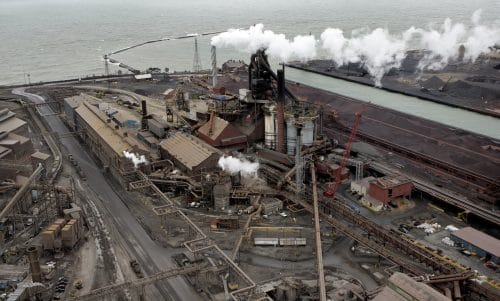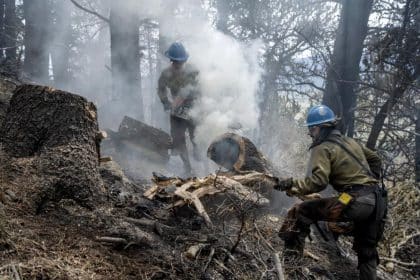Back Bipartisan Legislation to Curb Mexican Steel Imports and Protect American Jobs
COMMENTARY

Foreign competition, tariffs and soaring production costs have U.S. steel mills teetering on the brink of failure. New legislation introduced in March will prevent illegal steel imports from Mexico from coming into the United States, and it needs support.
Losing our domestic steel capacity would be an economic and national security crisis as our country relies on American-made steel for everything from defense contractors to infrastructure. Without it, our skilled industrial workforce evaporates.
The U.S. steel industry is a vital component of the American economy, generating $21.065B in 2022 alone. American steel manufacturers invest heavily in new or upgraded steel facilities and provide high-paying, safe jobs that offer great benefits for their employees. Yet they face potential plant closures as fraudulent steel importation continues to surge.
A 2019 agreement between the United States, Canada and Mexico lifted Section 232 tariffs on steel imports and opened trade between the United States, Canada and Mexico with the caveat that if surges in imports of specific steel products occur, the United States may reimpose tariffs on those products.
Nevertheless, mislabeled and illegal steel imports continue to enter the United States from Mexico. These imports are disguised as American-made steel and threaten American jobs, the American economy, the safety of our infrastructure and the country’s environmental goals.
According to the U.S. Census Bureau, 77% of imported Mexican steel conduit was misclassified in 2021. Product testing by Steel Tube Institute member companies has shown that many of the products cannot pass basic quality checks meant to ensure products are safe for installation under the codes and standards used in the United States. Because of this, the product infiltration could put U.S. infrastructure like electrical conduit systems, buildings and bridges at high risk for endangering Americans.
Prior to the implementation of the previously mentioned agreement, the U.S. steel industry supported nearly 2 million jobs that paid, on average, 27% more than the median earnings for men and 58% more than the median for women. If the United States continues to import offshore products, steel mill capacity utilization will continue to drop.
Steel demand has spiked in recent years because of federal legislation including the Infrastructure Investment and Jobs Act, the Inflation Reduction Act and the CHIPS Act. A shift toward electrification is expected to continue that trend, as renewable energy capacity expands worldwide. Still, illegal dumping of steel continues to plague parts of the industry, as we saw with a recent West Virginia plant closure that impacted 900 U.S. jobs.
That’s why Sens. Tom Cotton, R-Ark., and Sherrod Brown, D-Ohio, introduced the Stop Mexico’s Steel Surge Act in March and it was simultaneously introduced in the House by Reps. Rick Crawford, R-Ark., and Frank Mrvan, D-Ind.
The act would reinstate a 25% Section 232 tariff on Mexican steel imports for at least one year or until Mexico demonstrates compliance and commitment as determined by the secretary of Commerce and U.S. Trade representative. It would also grant the president power to respond to major surges on certain goods with new quotas or tariff rate quotas.
Steel is the backbone of American manufacturing and our mills are committed to meeting the growing demand for steel and providing the high quality, safe and sustainable product our nation needs.
Without federal support, American-based steel mills will be forced to further downsize or close entirely, leaving thousands of Americans without jobs, putting infrastructure at risk with improperly labeled products and causing further detriment to the environmental crisis.
The long-awaited and requisite Stop Mexico’s Steel Surge Act is imperative to the economic and environmental health of the country and must move forward to protect American steel manufacturing.
Dale L. Crawford is the executive director and director of Conduit at the Steel Tube Institute. Crawford is responsible for the organization’s activities to promote the growth and competitiveness of steel pipe and tubular products throughout North America. In addition to these responsibilities, he is in charge of activities, strategies and programs of the Steel Tube Institute’s Conduit Section, which consists of North America’s leading steel conduit manufacturers. He is a certified LEED Green associate by the U.S. Green Building Council. He can be reached on LinkedIn.






















